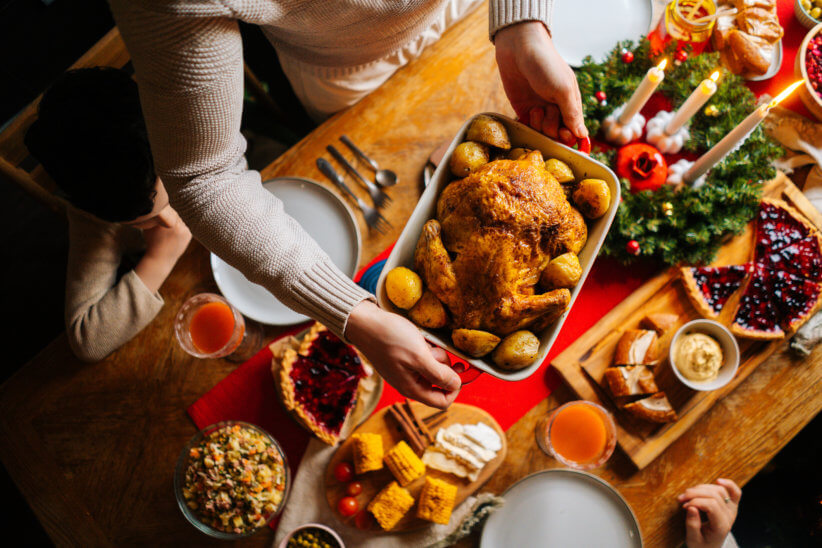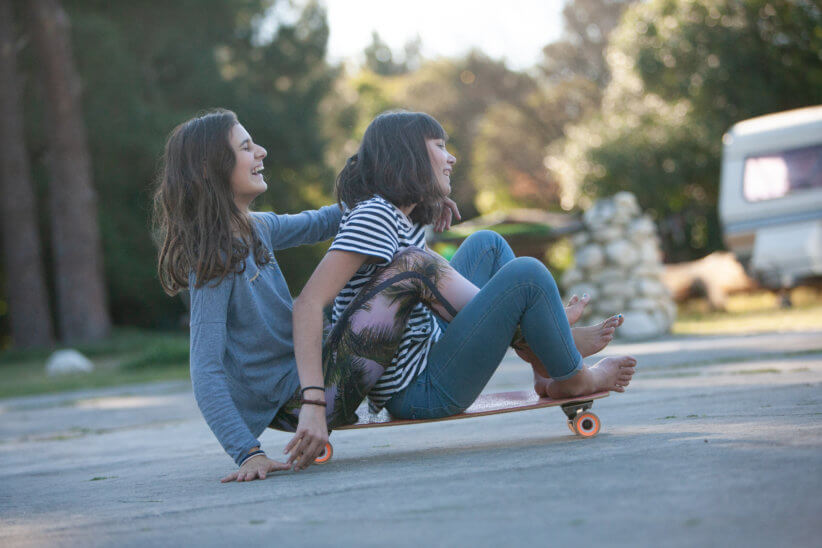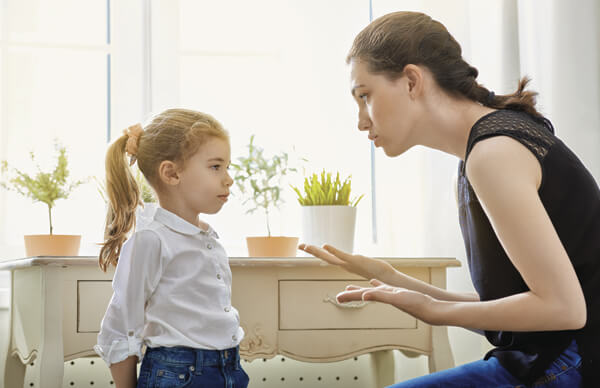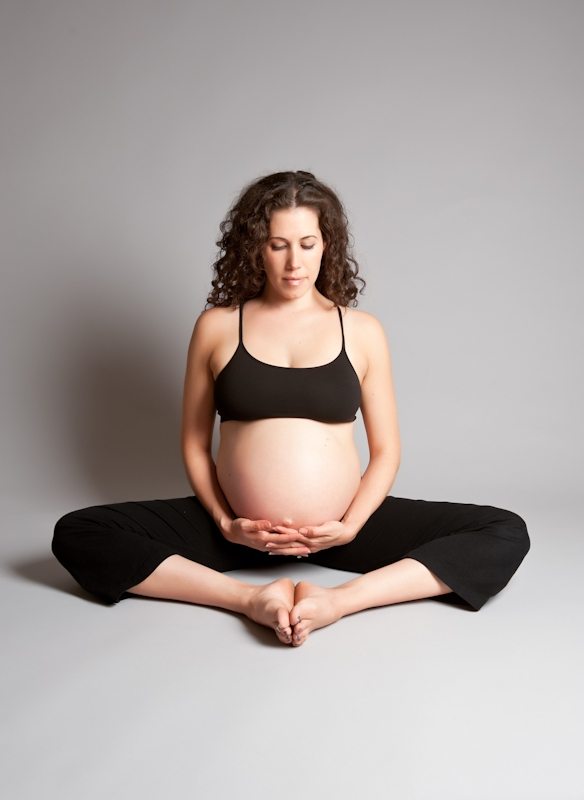
Body Image and the Holidays: An Expert Shares How to Talk About Food
The holidays are great for spending time with family and enjoying delicious food, but they can be a source of stress for many people, especially those with a history of eating disorders or body image issues.
This is especially true for kids and adolescents. Statistics have shown that around 50% of 13-year-old American girls report being unhappy with their body, and that number jumps to almost 80% by age 17.
While unrealistic images on social media and in magazines are partially to blame, conversations about food and bodies at home have an impact on how adolescents and teens view their bodies.
On food- and family-centric gatherings, like the ones that happen during the holidays, it’s important to be mindful about how we talk about food and bodies, especially in front of children.
We sat down with Zoë Bisbing, founder of Body-Positive Therapy NYC, and talked about how we can be more mindful about how we talk about food and bodies during the holidays and how to create a more body positive environment at home year-round.
Psst… Coney Island’s first ever winter wonderland experience arrives this month!
There are two major factors that can make holidays difficult when it comes to body image: family and food. Bisbing says the amount of feeling that come up around food and family can make the holidays “a minefield,” especially for people with a history of body image issues or disordered eating.
“If kids have grown up in a family where bodies were talked about a lot or dieting was talked about a lot,” Bisbing says. “Then family doesn’t always feel like a super safe place to go with feelings of discomfort or insecurities about body.”
While the holidays are ideally about gathering with family and feasting, “we live in a pretty disordered culture where not all people feel super comfortable sitting down for a big meal and enjoying themselves,” Bisbing says. “A lot of people have experienced a lot of guilt and shame around eating or are not comfortable eating around their families.”
With this combination of food and family, the holidays can be a setting for “emotional darts,” as Bisbing calls them, to fly.
Oftentimes, these take the form of older relatives commenting on how children’s bodies have changed. Regardless of whether comments like these are meant to be positive or negative, Bisbing says they can be damaging because they often reinforce the idea that fat is bad and thin is good. They also increase body consciousness in all people, regardless of age.
These emotional darts can also take the form of comments related to food. Many of these comments are connected to diet culture, a set of beliefs that ties thinness to moral value.
“It’s like second nature for people to say things like, ‘Oh my gosh, I’m so full. I have to go work out,’” Bisbing says. “Just sort of negative comments, or just, even as they’re trying to enjoy themselves, commenting on what they’re going to need to do to compensate for it.”
Comments like these can be damaging, especially for kids to hear, because it pushes the idea that enjoying food is something that should come with guilt, rather than pleasure and satisfaction.
“You have a lot of comments flying about, ‘oh my gosh, what I’ve done is so bad and naughty,’ which just sends a message that somehow there’s shame or morality in food, where it really has no place,” Bisbing says.

What Can Parents Do To Shift Conversations About Food and Bodies during the Holidays?
Being more mindful about how you talk about food doesn’t mean you have to avoid the topic entirely.
“We want to remove food talk as it might fit into more of a diet mentality,” Bisbing says. This could look like “getting rid of conversation that suggests that somehow there’s a danger in eating food,” Bisbing says.
Instead, talking about food can focus on the rich sensory experience that eating can be.
“Helping kids of all ages gain food acceptance skills and food appreciation skills, food literacy skills, getting kids involved with cooking is enormously body positive in its own right,” Bisbing says.
Bisbing says the holidays are an incredible opportunity to build these skills in kids.
“Especially with all the flavors and traditions that are, hopefully, wrapped up in those, there’s just so much sense memory to gift your child,” Bisbing says.
Avoiding talking about bodies can be difficult, especially when you add extended family to the mix. But there are still ways you can shift conversations and protect your children, even when extended family is involved.
The key is to be interpersonally effective and know who you’re talking to.
“Your 99-year-old grandma is probably not going to engage with you in a conversation about body positivity and eating disorder risk,” Bisbing says. “You can’t necessarily teach an old dog new tricks.”
For instances like this, the best solution is to protect your child from that person, especially if that person is at risk of throwing a dart without realizing it.
“Sometimes it has to be as severe as really just removing your kid from a particular person without much interaction,” Bisbing says.
For other family members, you may be able to get ahead of the issue by having a conversation with them ahead of time about how your family has learned about the importance of body positivity and asking them to tone down the body talk.
No matter what route you take, Bisbing says the important thing is to use interpersonal effectiveness skills to set boundaries “with confidence and compassion.”

How can parents foster a body positive environment outside of the holidays?
Establishing a culture of body positivity at home starts before Thanksgiving rolls around. One way to do this is minimizing how often your family talks about bodies.
“Can you turn the volume down on that a little bit and turn the volume up on talking about people’s insides?” Bisbing says.
You can also increase representation of different bodies in your home through books and art.
“Make sure that you have some kind of body positive visuals so that your kids are growing up in an environment where they’re seeing normal bodies looking all sorts of ways,” Bisbing says.













